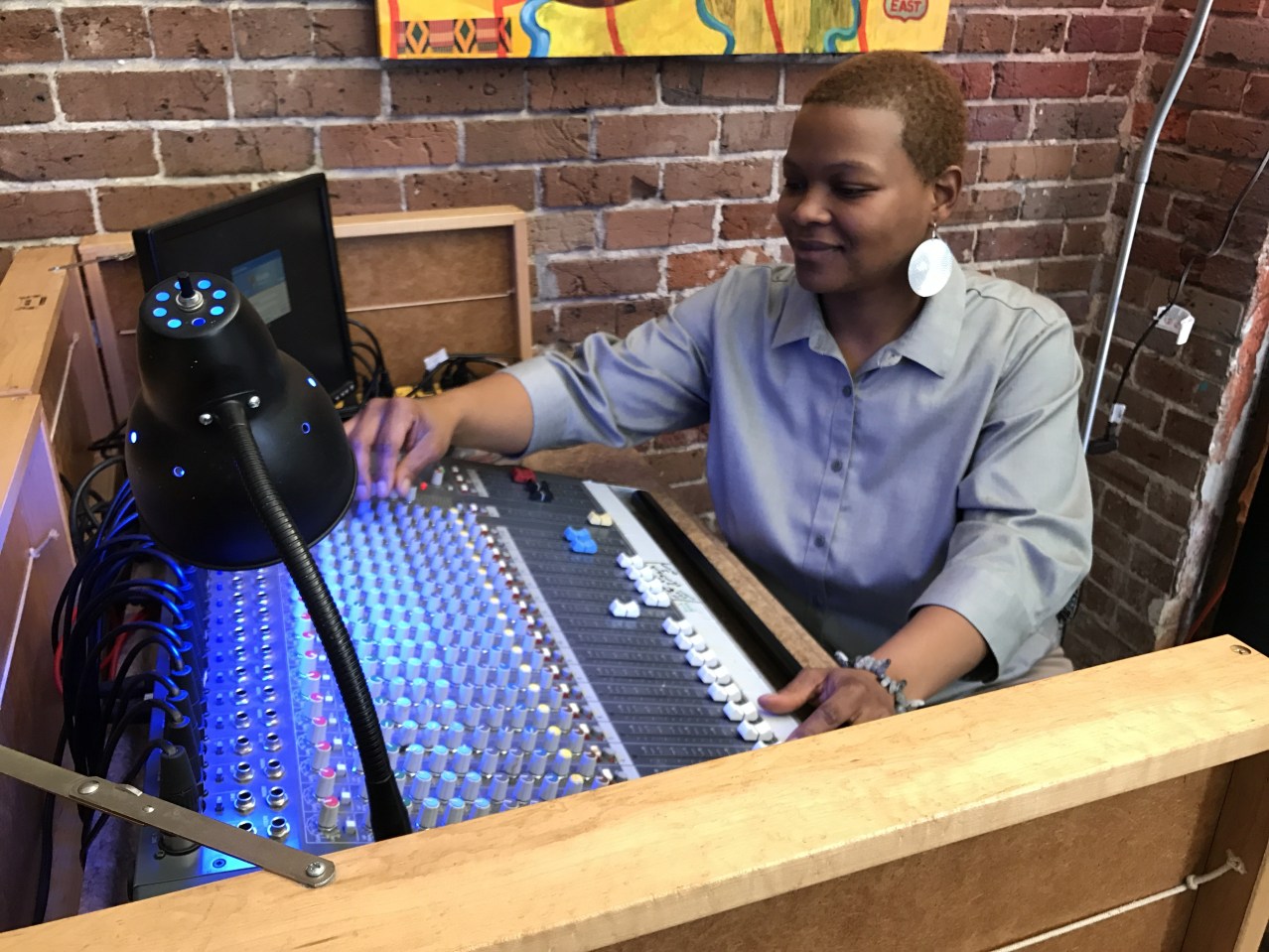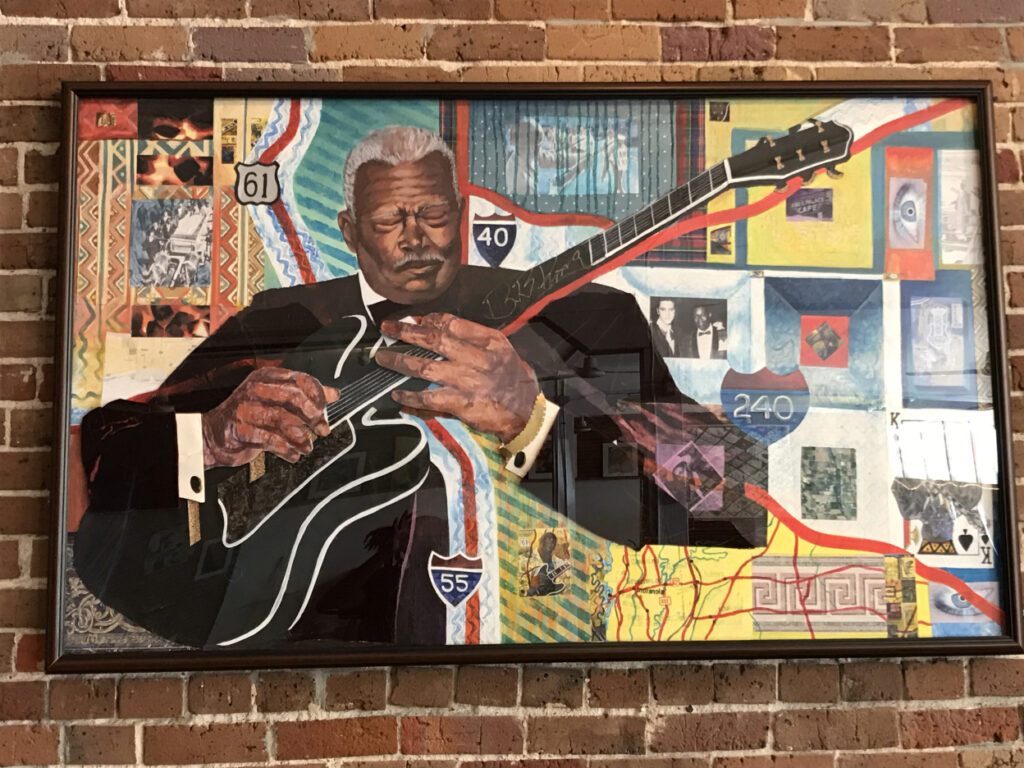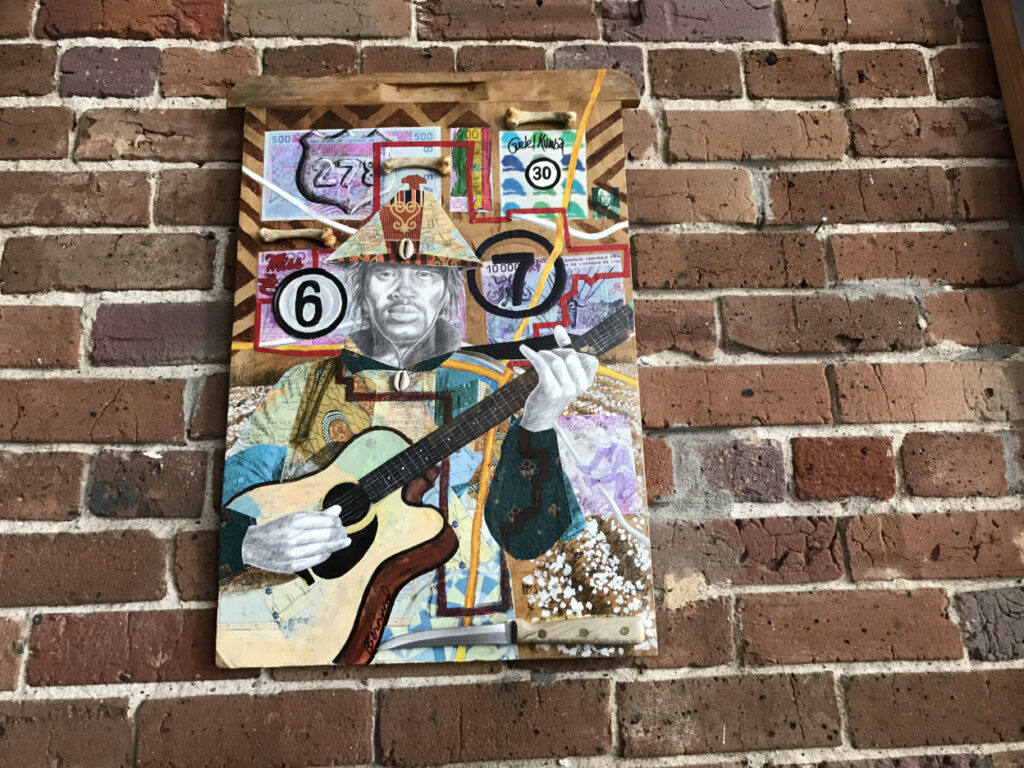
Crossroads Cultural Arts Center is in the heart of the Delta in Downtown Clarksdale, a place known all over the world as the home of the blues. The Mississippi Delta is the birthplace of many music legends like Muddy Waters, Howling Wolf, and Ike Turner.
Per usacityfacts.com statistics, Clarksdale’s unemployment rate is 15.2 percent, far greater than the 7.9 percent national average. The poverty rate is a staggering 27.3, also higher than the national average.
These alarming numbers are a reason to sing the blues, but Crossroads Cultural Arts Center stands as a beacon of hope in a place that has a rich and often complicated history.
“The Delta is rich with all kinds of art forms, and the presence of many African art forms are rooted in the Delta, including the most famous, which is Blues music,” CCAD Director Chandra Williams said. “The art of the Delta has influenced the world and continues to do so. The Delta is a vortex of musical talent and/or power.”
The atmosphere is warm and inviting inside the CCAC. Original artwork from local artists and the director brightly covers the walls. There are several different places to sit to enjoy the music that comes from a small stage, enabling visitors to have an intimate experience with whomever is performing.
The place is filled with places where kids can create, including a tie-dying station. Around every corner is a chance to experience something new and unique.
Different programs are offered to the community, including art-making (painting, drawing, textile), youth performance arts, art education, and musical performances that incorporate blues, gospel and African folk music.
One of the main missions of the CCAC according to Board President Brad Bernard is proving a space for learning about cultural history (specifically Clarksdale and the Blues), storytelling through music, and visual arts.
“This is important, because of the deprivation of learning cultural history, as well as the exploitation of that cultural history and the art that it comes from,” he said.
The CCAC staff members work to create a space where people feel comfortable to be themselves, learn about themselves and explore other cultures in a fun, comfortable way through the arts.

Another CCAC mission is to educate constituents and visitors about the rich oral history of the blues that stems from the continent of Africa. This is a topic Williams feels strongly about.
“The blues is connected to an ancient African oral history that it begins to heal and mend, in the sense that our history has lost,” she begins.
“The written records that we have from the slave ships are, at best, incomplete, but the blues can connect us to a history that is more complete. That’s what drives me every morning.”
Williams is adamant that African American history did not start in slavery. “In Africa, we were singing our stories and history, and we continued to do so when we came here,” she said, “especially in the form of the blues. If we can connect those songs with the songs in Africa, we will have a longer and more complete history. We will then see who we are and were before slavery, and that’s healing for our cultural identity.”
Williams recalled a story of an Oxford musician, Guelel Kumba, whose life is a great example of that connection. A member of the band, Afrissippi, Kumba hails from Senegal and is of Fulani heritage.

When Kumba moved to Mississippi, he discovered a close connection between North Mississippi blues traditions and Fulani music. He played an ancient Fulani song that was unrecorded, and Mississippians said they had heard the song before.
They recognized it, because it was a song that blues artist Junior Kimbrough played called “Hands off that Girl.” The words were clearly different and in English, but the melody was the same.
Somehow, ancient West African folk music, that was traditionally passed down through generations, found its way to the state of Mississippi.
This amazing story is just one part of the rich connection that the blues has to Africa and is one that drives the CCAC curriculum. Both Williams and Bernard agree blues has inspired many genres of music.
“The blues is seen as American culture and has inspired musical creativity around the world,” Bernard said. “You wouldn’t have the British Invasion, such as the Beatles, Rolling Stones, Led Zeppelin, and others without the Blues.”
The blues has the potential to be the glue that can bind broken communities and the cultural divide that is ever-present in the American South.
Ultimately, Williams would like to see the Crossroads Cultural Arts Center as an active community center that celebrates the Delta’s culture and heritage and instills a sense of pride in the community.
She wants it to be a place where visitors can interact and engage with the community at large, a unifying attraction point, a home for oral history, a center to explore and celebrate the presence of African culture in America, and ultimately, a place where healing takes place.
By Kimberleigh Forbes, read more stories like this on OxfordStories.net.
For questions or comment email Hottytoddynews@gmail.com.
Follow HottyToddy.com on Instagram, Twitter and Snapchat @hottytoddynews. Like its Facebook page: If You Love Oxford and Ole Miss…
